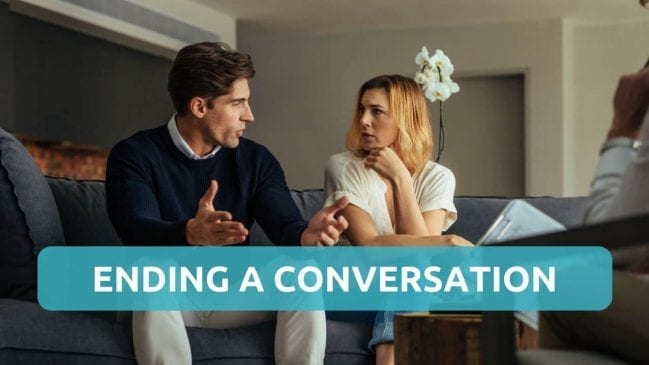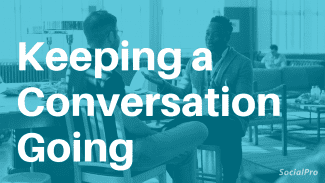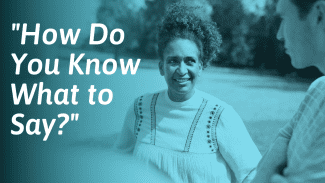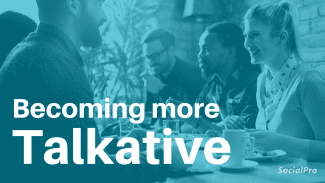Have you ever found yourself trapped in a conversation that you really didn’t want to be in? Or maybe it’s a conversation you’re enjoying, but the clock is ticking and you’ve got deadlines to meet.
Whether the situation is a pleasant one or not, it’s always best to end a conversation politely and with respect toward the person you’re speaking with.
Taking some time to learn various strategies for politely exiting a conversation will ensure that you leave a positive impression and avoid offending anyone.
Many times, offering an indirect pleasantry will signal to the other person that the conversation is wrapping up. This can include
- “Well, it was good to see you!”
- “I’m glad we got to catch up!”
- “It was nice talking to you!”
- “It was so good to meet you!”
For most people, these statements are recognized conversation-enders. Indirect pleasantries work well in person, but they’re great for ending phone or text conversations as well.
Other times, the person you’re speaking with may not be so good at taking the hint, or it may feel more natural to use a direct statement of departure. Following your direct statement with one of the pleasantries mentioned previously will help finalize the end of the conversation and force the other person to respond to your exit, rather than picking back up the conversation.
For example:
You: “Well I’d better head out.”
Steven: “Oh okay, but hey did you hear about the new Star Wars movie coming out?”
OR
You: “Well I’d better head out. It was great to see you though!”
Steven: “Oh ok, it was good to see you too!”
In the second example, Steven is unable to (politely) bring up the new Star Wars movie because he’s a nice guy and is going to return your friendly comment.
Some more examples of direct statements of departure that can be paired with indirect pleasantries include:
- “I have to get going now.”
- “I’m sorry to take off so soon, but I’ve got somewhere to be.”
- “I just saw some friends come in, so I should probably go say ‘hi.'”
- “I just noticed I missed a phone call, so I’m going to step out for a few minutes.”
If you’re ending the conversation with someone you’d like to talk with again, making plans for future conversations is a great transition point for leaving.
- “Hey I’ve got to get going, but are you free to grab coffee next Saturday?”
- “I’m sorry to cut our conversation short, but I’d love to hear more about your trip. Would you mind if I gave you a call later tonight?”
Another good way to wrap up a conversation is to return to the conversation’s main point. Often, conversations start off addressing a specific topic and eventually stray to other things. Bringing the conversation back around to its initial purpose can signal that things are coming to a close.
- “Congratulations again on the promotion! Keep me updated!”
- “Well I’m sorry to hear about the situation with your house, but let me know if there’s anything I can do!”
- “Let me know when you hear back about that job opportunity!”
Generally the person will be able to tell the conversation is ending and will respond along the lines of, “Thanks! It was good to see you!” If not, this is a good time to resort to a direct statement of departure, mentioned above.
Non-verbal cues can be used in conjunction with one of the previously mentioned verbal methods, but often they can signal the conversation’s end all on their own. Some non-verbal cues include:
- Stand up if you were previously sitting
- Put on your coat, grab your purse, make other preparations for leaving
- If the conversation interrupted you while working or completing an activity, returning to what you were previously doing can signal to the other person that it’s time to leave
- Glancing at your watch can make the other person aware of the amount of time you’ve spent talking and subsequently bring the conversation to a close
Who it is you’re speaking with can help you determine which of these methods to use.
Since my best friend and I no longer live in the same state, our conversations can span multiple hours when we finally get a chance to catch up. No matter how many times either of us says “I need to get going soon,” we’re never able to actually end the conversation until one of us stands up and actually starts to leave (and even then the discussion continues all the way to our car doors).
For instance, it’s probably not as appropriate to say “Hey I have to go, talk to you later” to someone you’ve just met as it would be to someone you’re much closer with.
On the other hand, you wouldn’t say “It was nice to meet you!” everytime you left a meeting with your boss. You also wouldn’t just stand up and prepare to leave when having a conversation during a job interview or on a date (unless things have gone terribly, terribly wrong).
Think about the person you’re speaking with, their attitude and disposition, and the level of formality of your conversation. Use your best judgement to determine which method will be best received. If the person isn’t taking the hint, you can resort to using more direct methods while remaining friendly and polite.
Making conversation is an important skill to have, but the way you end the conversation will also leave a lasting impression.
Have you ever been trapped in an uncomfortable conversation? What did you say to get out of it? Give us the cringe-worthy details below!













Great!the best of the kind l’ive ever read. Although with the relp of the google translator. I would like to hear about new articles on relationships and behavior. Yes! With translation option.Thank you!